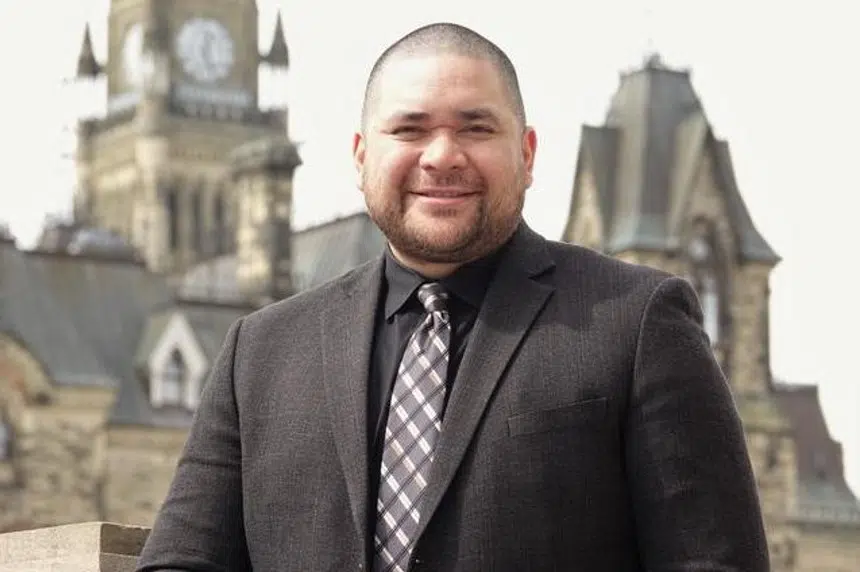History was made Monday, when Dr. Alika Lafontaine was officially sworn in as the new president of the Canadian Medical Association (CMA).
He’s the first president in the organization’s 155-year history to be of Indigenous heritage.
It has been a long road for the Regina product to get to this point.
Now an anesthesiologist who works out of the Grande Prairie Regional Hospital, Lafontaine was once told he would never finish high school. He credits his parents and their support for allowing him to get to this point.
“The path to kind of go from the struggles I had as a kid where I was labelled ‘developmentally delayed’ to then being labelled ‘gifted’ is really a story about my parents not accepting labels and putting time and effort into figuring out what worked for me,” he said Monday.
“I obviously had some barriers to receive that label, but the school system wasn’t as flexible when it came to different ways of learning and different opportunities to kind of seeing me thrive.”
Many experts in health care will say as of right now, the system in the country isn’t up to par with the standards it should be at.
Lafontaine thinks the experiences and challenges he faced growing up can sort of translate to the current battle the health-care system is going.
“I think there is a comparison that you can make with the health-care system right now,” he said. “We obviously are not having great experiences when we come in for care, whether it is as physicians, providers or patients.
“The kneejerk reaction is to turn to other models of care and discuss things like privatization and other things instead of other approaches to shore up the public health-care system. If we refocus what we’re doing in the public health-care system, I think we can see a lot of impact as well.”
Lafontaine says as president of the CMA, he’s focused on making the system better for everyone who walks through the doors.
“I know one of the big motivating factors for me getting into this position was a desire to have impacts in the physician community and for patients,” he said. “The way I got into this position was having the support of physicians around Alberta, who chose the CMA president my year.”
Every year, a new CMA president is elected from a different province. That president is chosen by doctors of each province when it is their turn. Another CMA president won’t be selected from Alberta for another 13 years.
As someone of Indigenous heritage, Lafontaine said he really wants to focus on tackling issues such as the care Indigenous people get in their smaller communities.
“If you look at Indigenous health care, it’s a magnification of everything wrong with medical care,” he stated. “If you have poor communication, it’s 10 (to) 20 times worse in a place where Indigenous patients receive care.
“Having worked in that space for so long and realizing the things that can work and are more effective, it really goes back to the parts of care that work for everyone.”
In order to get that situation under control, Lafontaine said communication and building relationships will be a key factor.
“If you look at the biggest learning that I had as president-elect, it’s the scope and size of the CMA itself,” he explained. “It’s a 155-year-old organization and has been at the forefront of health-care transformation and improvement for nearly the entire time that it has been in existence.
“Under our past president, Dr. Katherine Smart, it really was one of the first organizations to have a very bold claim of addressing the collapse of our health-care system. I’m really looking forward to carrying that on and addressing it in a way that protects our most vulnerable — and that includes Indigenous peoples.”
Lafontaine’s role will consist of meeting with stakeholders as well as working with various levels of health care to get the system up to higher standards.











